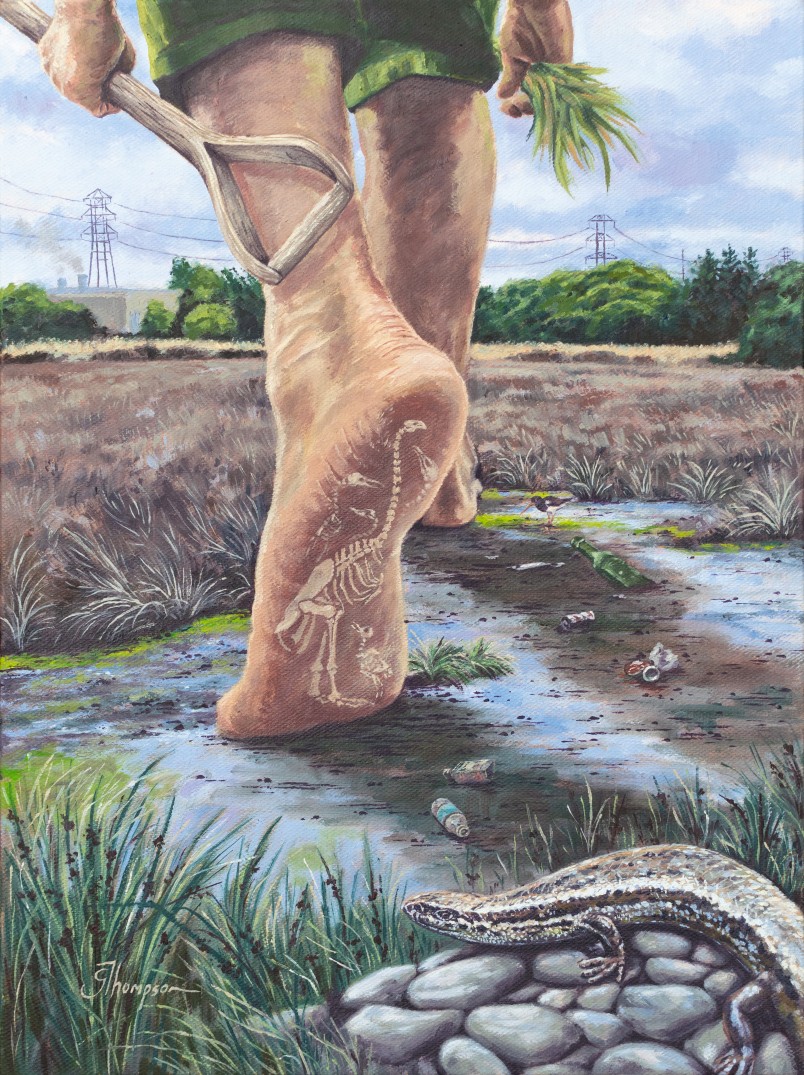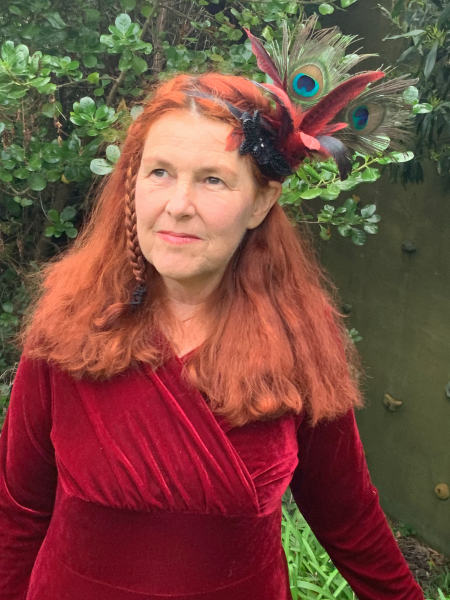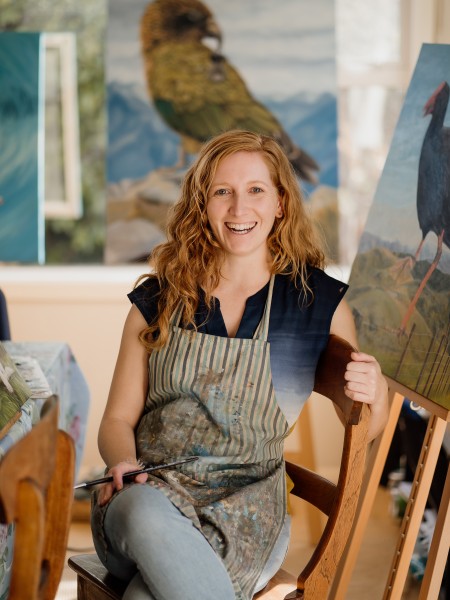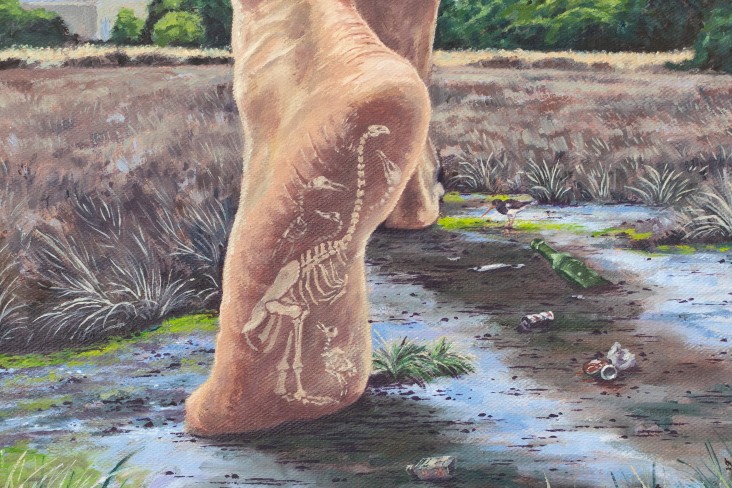Calder Green Reserve
Christchurch

Only Footprints. Artist Georgette Thompson
Footprints in carbon
Writer: Gail Ingram
Ihutai, the prow of the tide
where sea noses river
where tuna met flounder met
kōtuku alit totara
where Kāi Tahu mingled
at the outpost they called
Ōpāwaho
where the river bends and the oioi grew
where sails flapped around a devilish elbow
where bullocks strained and councillors drained
where rubbish was dumped
and the bittern fled
from the final corner
of saltmarsh on the river
before foresight prevailed
and they called it
Calder Green
where we’ll meet again, plant mākaka
for protection, tussock for the skink,
where we must stand and staunch the tide
as kaitiaki–Ihutai, the prow.

Writer: Gail Ingram
Calder Green Reserve, a tiny urban saltmarsh reserve, 1.6ha in size, on a crooked bend of the lower Ōpāwaho River, in Christchurch, serves a big purpose. It was named after DF Green who gifted the land to the Society in 1980 and Bernie Calder, the Forest & Bird North Canterbury Branch chair at the time, who worked hard to preserve the Heathcote-Avon wetlands from development.
It is a striking place. The estuary light brings both serenity and wilderness to the heart of Aotearoa New Zealand’s second biggest city. Yet our human footprint is never more obvious. Once a gathering place and food source for Kāi Tahu, it was modified by the first Pākehā settlers. The Avoca Stream was redirected to create waterways for stock, and the creaking pines and gums that line the river were planted.
The eastern entrance to the walking track shares a boundary with an old city council rubbish dump, covered now by the Ferrymead golf course. At the other entrance where the Lyttelton motorway roars, a developer has set up a container park. Where once we enjoyed the green vista towards the city centre, we now find it marred by towers of corporate-branded containers.
Threatened at every quarter, this place of kōtare kingfishers, kōtuku ngutupapa royal spoonbill, and, more recently, a community-created lizard sanctuary is precious. We have always come here–for gathering, for solace, during Lockdown, in weekends, after work–families, dog-walkers, bikers, nature-lovers, city-dwellers all. We come to spend time together, replenish, and simply breathe in the beauty of the river, the endangered saltmarsh, and all the life it provides. From now, let us leave only footprints.
Only Footprints
Artist: Georgette Thompson

Artist: Georgette Thompson
It astonished me that commercial waste had flowed directly into the Ōpāwaho Heathcote River until the early 1970s. No wonder there was a loss of wildlife diversity here in this rare urban saltmash wetland. This haunted me and an image started to form. I scribbled it down so I could show my writing partner Gail the following day. Hearing of the conservation work at the reserve, including efforts to restore the Canterbury grass skink, I was filled with hope for the future. Yes, humankind had a devastating impact here, but now conservation volunteers are making a positive difference.
Medium: Oil on canvas.

